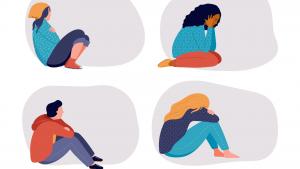The Children’s Commissioner Anne Longfield has written to both the Permanent Secretary for the Department for Education and the Permanent Secretary for the Department of Health and Social Care requesting additional safeguards for particular measures to ensure that children’s rights and best interests are always upheld.
Find the full letter below;
Dear Jonathan and Chris,
I appreciate that these are unprecedented times, and as such it is reasonable and necessary for the Government to seek emergency powers through the Coronavirus Act in order to protect public health. However, I am concerned that some of the legal protections for the most vulnerable children may be overturned in the enactment of the Act and therefore I am requesting additional safeguards for particular measures to ensure that children’s rights and best interests are always upheld.
Children with disabilities and additional care needs
Children with disabilities and additional care needs are a group who may be most negatively affected. Local Authorities will no longer have to comply with their duties under the Care Act to asses children’s needs for continuing care after the age of 18. The Act also removes the duty under the Children Act to provide support for young people who may need continuing care after 18 if their assessments have not been completed under the Care Act. Without assessment of their needs and clear support plans in place, a group of children turning 18 in the next few months are likely to be facing a very precarious future. In addition, without this help in place not only may their own health be in danger, but they may also pose a public health risk if they are not supported to self-isolate or stay at home.
In addition, the bill grants powers to the Secretary of State to relax duties on Local Authorities to provide appropriate education and health care to children with additional needs, to admit those children to their chosen school, and review their plans annually. Local Authorities would then only have to make ‘reasonable endeavours’ to meet those duties. I would appreciate clarity on what reasonable endeavours include, and how they will be monitored. I would also like to be notified if and when the Secretary of State issues a notice to use those powers.
I would like to see schools, community health services and other services co-ordinating information to identify children who may be at risk without additional support, and establishing clear plans for how families will be helped to care for these children.
Young carers
The Act also removes the duty to assess the needs of young carers – we know that around 100,000 children are caring for family members, and this is likely to increase in the coming months. In doing so they will be providing immense support to health and care services. It will be important that they are able to continue to receive assessments to identify what help they need.
It is essential that clear guidance is given to Local Authorities informing them that their duties to young carers and children with additional needs under the Care Act and Children Act may only be ignored as a last resort, and for monitoring to be introduced of the numbers of children and young people whose need for an assessment could not be met.
Powers to detain children under the Mental Health Act
I understand the need to reduce the burden on health staff, however granting powers to detain under the Mental Health Act on the approval of one doctor, rather than the usual two, could increase the risk of children being inappropriately detained. One thousand children were detained under the Mental Health Act last year, and it is vital that we ensure robust protections for them continue. I would like there to be an expectation that children should be prioritised when it comes to having a second doctor, and it would be helpful if the number of detentions authorised by one doctor is recorded. Additional guidance may be required here. The risk of inappropriate detention is compounded as CQC has suspended their routine inspections, advocacy services are going online, and Mental Health Act tribunals may be conducted without doctors or lay members. I would like to see children prioritised for full tribunals, and to be well supported to access remote advocacy services.
Investigations into deaths related to Covid-19
Although thankfully children seem to be less affected by Covid-19, there is still a risk – particularly to those children with additional health needs. While I appreciate the proportionality of removing the requirement for inquests to be held with a jury, I would like confirmation that if any deaths of children from Covid-19 occur – including those in institutional settings, such as children’s homes, young offenders institutions and mental health wards – that appropriate investigations into these will still take place, to understand what measures could have prevented them.
Detaining children on public health grounds
The Act also introduces new powers to detain children on public health grounds, for a period of up to fourteen days. I agree that this may be necessary in order to prevent the further spread of disease, however I am concerned that the Act allows this to be done without consent from someone with responsibility for the child, and only requires ‘reasonable steps’ to be taken to inform someone with responsibility of the detention. I would like to see protections for children in these circumstances strengthened, with timescales in place for when those with responsibility will be informed about a child’s detention. I would also like data to be made available to me on all instances where a child is detained using these powers.
With further guidance, careful monitoring and a clear understanding that these measures will only be applied as a last resort, I believe the Government will be better able to balance the pressure on all services and the need to protect children’s rights. It would be very helpful for Government Departments to provide updates to Parliament on how the rights and needs of children are affected by the measures in the Act.
The Office of the Children’s Commissioner is independent of Government and has a remit to investigate and seek clarity from Government and other bodies in regards to any policies, or legislation relevant to children. We frequently ask questions to the Government and receive responses from them.
When the March 2020 Coronavirus Act was published, this Office quickly wrote to the Government’s Department for Education (DfE) and the Department of Health and Social Care (DHSC) to seek clarity on a number of points related to the safeguarding of children. One of these questions sought clarity on Schedule 21 of the Act and the nature and range of the powers given to Public Health Officers to deal with an “infectious person”; specifically could they remove a child to a place to be tested and assessed without reference to a parent for 14 days.
Our letter is published above.
On 9 August 2020 we became aware of social media posts surrounding this issue quoting our letter of four months ago. In April 2020 we had a response to our letter from Govt and have published the relevant section here.
“Detaining children on public health grounds
Public Health Official’s power to screen and assess (under Paragraph 10) and isolate/detain (under Paragraph 14) can only be exercised in the presence of an individual with responsibility for the child or, if no such individual is present, in the presence of an adult that a Public Health Official considers to be appropriate having regard to the views of the child. Public Health Officials will take reasonable steps to inform an adult as that contact is likely to be made through local authorities. Every effort will be made to ensure that the appropriate safeguarding is in place. If the guardian/parent feels that restrictions imposed on the child is unfair, he or she will be able to proceed with the right to appeal to the magistrate’s court. We can assure you that we have every intention to protect the most vulnerable children in society during the COVID19 outbreak and that the implementation and impact of the Coronavirus Act will be closely monitored.”
Now, in light of the social media posts that appeared in August 2020 we have sought further clarification on the nature of the question posed in many of those posts. We have had confirmation from the DfE and DHSC that a parent, carer or legal guardian has to be present for a screening to take place under these powers. They also stated that:
“It is not true that Public Health Officers have the power to screen and assess without a parent or carer present. This power can only be exercised in the presence of an individual with responsibility for the child. The responsible adult under Schedule 21 is a person with parental responsibility for the child within the meaning of the Children Act 1989 or a person who has custody or charge of the child for the time being.
In the extremely rare case that 1) these powers are being used and 2) the even rarer case that a child does not have a parent, carer or legal guardian, a Public Health Officer can decide who is the most appropriate adult to be present for a screening. At no point will a child be screened without the most appropriate adult present.
Public Health Officers will make the appropriate assessment and restrictions will be placed accordingly. Under these powers they could be asked to self-isolate with their families at home for up to 14 days to stop the spread of coronavirus if they are not voluntarily complying with the public health advice. If the individual is unable to self-isolate at home this will need to be discussed with the Public Health Officer and alternatives discussed.
If the guardian/parent feels that restrictions imposed on the child is unfair, he or she will be able to proceed with the right to appeal to the magistrate’s court.”
We have also provided publicly available guidance to Public Health Officers, written after we sought clarifications in March 2020, on the exercising of these powers under the Act for further clarity.
The Office of the Children’s Commissioner has always asked, without fear or favour, robust questions of Government at all levels, regarding the safeguarding of Children. We have continued to do so during the coronavirus pandemic and the UK lockdown. We will do so in future and any further relevant information we receive regarding the use of Schedule 21 of the 2020 Coronavirus Act we will reproduce here.





